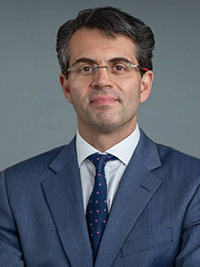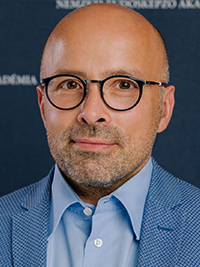 Tamas Gonda
Tamas Gonda Associate Professor
Department of Medicine, Gastroenterology
New York University Grossman School of Medicine
New York, NY
 Péter Hegyi, MD
Péter Hegyi, MDProfessor and Director
Institute for Pancreatic Diseases
Semmelweis University
Budapest, Hungary
Overview
Aim: Early Detection
Patients with pancreatic cancer may present with acute pancreatitis 6 months to 3 years prior to diagnosis, which offers an opportunity for early detection. Nearly all patients undergo cross sectional imaging with a CT scan at presentation for acute pancreatitis, however characteristic radiologic signs may not be identified and therefore the diagnosis can be missed or delayed. Radiomics offers an opportunity to identify novel markers such as pancreatic image texture and/or abdominal tissue composition analysis that maybe used as predictive markers. Machine learning models, incorporating multimodal biomarkers, can further enhance the accuracy of these prediction tools.
In our proposal, we build on the largest acute pancreatitis surveillance cohort enriched with CT-based imaging data collected by the Hungarian Pancreas Study Group. We use a validated image analysis pipeline developed at NYULH (Firevoxel) to quantify image-based changes and develop a model that identifies those patients with acute pancreatitis who are at risk for developing cancer. This collaboration leverages unique resources between the two sites and is further strengthened by the current availability of the imaging and clinical dataset, completion of data transfer and expertise in image analysis and modeling.
Early detection of pancreatic cancer offers an important opportunity that likely impacts survival. Although efforts have focused on using imaging as an early biomarker, none have focused on acute pancreatitis. Parenchymal changes associated with acute pancreatitis create specific challenges for radiomics and we believe this study will be the first to specifically address and evaluate these. We are also hopeful that this Seed Grant will allow us to develop a model that can be subsequently validated and implemented in a prospective cohort and expanded to other applications of radiomics in acute pancreatitis and pancreatic cancer detection.